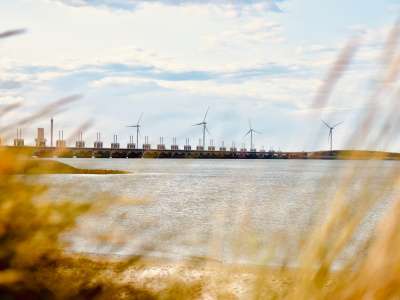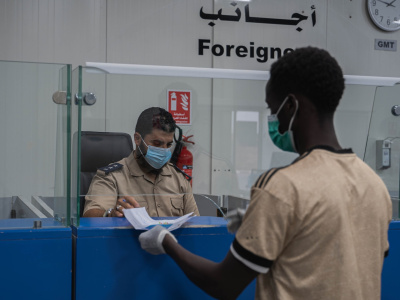
South Africa - Competing with the other BRICs in Africa
South Africa often markets itself as the gateway to Africa. This position becomes increasingly questionable as it faces growing competition from the BRICs and from other booming economies in Africa.
South Africa, BRICs and the African agenda
When South Africa was invited to be part of the BRIC Group in December 2010, the Ministry of International Relations hailed the country’s inclusion in the rising powers’ club as a diplomatic success. South Africa’s invitation to join the BRICs[1], adding an ‘S’ to the acronym, was not the result of a classic procedure. Usually, it is the member states of a club that invite new member to join the mini-lateral group, without the invitee asking for it. In the case of South Africa its final inclusion resulted from an intensive diplomatic campaign that promoted South Africa’s aptitude and legitimacy to become a member. The campaign was based on three main arguments: (1) the necessity to have an African representative and make the BRICs better representative globally, (2) South Africa’s central position as an economic gateway to Africa, and (3) an opportunity to promote African interests in the BRICs. For South Africa’s diplomacy, being part of the BRIC Group was also a way to position itself globally as a rising power, despite its lower economic strength compared to the other BRIC nations in 2011.
Table 1 – Economic statistics of the BRICS economies
Source: World Bank indicators, World Bank database, 2011 South Africa’s questionable position as gateway to Africa By positioning itself as a political and economic gateway for the BRICs in Africa, South Africa intends to play a pivotal role in the BRICS-Africa relationship. This self-positioning has both economic and political features: on the political front, under the Mandela and Mbeki administration South Africa engaged in several mediation and conflict resolution operations on the continent. It is, in this regard, ahead of the other BRICs countries that have less experience with conflict resolution, with the exception of Brazil who acted as a mediator in the political crisis in Guinea Bissau. Economically, South Africa, as the only African member-state of the G20, presents itself as a key interlocutor towards governments and foreign investors on the continent and as a transmission belt between global and African regional markets for developed countries and emerging economies.However, South Africa’s position as an economic gateway is being challenged. Other economies such as Kenya, Nigeria, Tanzania, and Ethiopia - fuelled by their economic growth and expanding markets - are also trying to position themselves as regional hubs and gateways. South Africa meanwhile has experienced a slow economic recovery from the financial crisis of 2007/08 and is facing increasing competition from these emerging markets, especially in the port and transportation sector.
Table 2 – Growing competition in the attraction of FDI flows from other African economies
While Durban remains a major port and transportation hub in the Southern African region, its wages are soaring and commodities from the BRIC economies are increasingly transiting through ports that imposes less taxes such as those in Maputo (Mozambique), Dar es Salaam (Tanzania), Mombasa (Kenya) and Walvis Bay (Namibia).[2]
Increasing competition from the BRICs in Africa
South Africa’s membership in the BRICs Group is not necessarily an economic win-win relationship. Public and private companies from India, Brazil and especially China are presenting growing threats to South African commercial interests on the continent. Chinese companies expand their shares in important infrastructure, mining, and textile markets in Southern Africa.[3] Brazil is considering Luanda and Maputo as the main regional hubs for its commercial interests with Lusophone Africa, while also developing relations with non-Lusophone African economies with interesting prospects for its extractive industry. Russia is considering reinforcing relations with African economies and re-gaining ground that it lost since the end of the Cold War. Since 2009, Dimitri Medvedev has undertaken several official visits to Nigeria, Namibia and Angola, followed by delegations of Russian businessmen.[4]Political platforms such as the Forum on China-Africa relations (FOCAC), the India-Africa Forum Summits, the Techno-Economic Approach for Africa–India Movement (TEAM 9) and the Africa-South America Forum initiated by Brazil, present various platforms for BRIC countries to politically engage with African countries. South Africa’s role and economic advantage in the BRICS-Africa relationship thus remains questionable and requires reconsiderations from policymakers in South Africa.
Folashadé Soule-Kohndou is Research Associate on the Global Economic Governance programme at Oxford University, U.K.
This article was published in GREAT Insights Volume 3, Issue 4 (April 2014).


